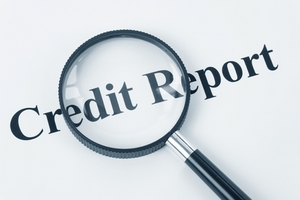 The simplest way to view what is on your credit report is to use annualcreditreport.com to receive a free credit report from each of the three main credit agencies (Equifax, TransUnion, and Experian) once every 12 months.
The simplest way to view what is on your credit report is to use annualcreditreport.com to receive a free credit report from each of the three main credit agencies (Equifax, TransUnion, and Experian) once every 12 months.
You may also view your credit report and credit score online by contacting each of the following credit bureaus:
Equifax:Credit Report Assistance
TransUnion: www.transunion.com/credit-reports-disclosures/free-credit-report
Experian: Free Credit Report &Free Credit Score
What will appear on my credit report?
- Account Names
- Credit Limits
- Identifying information
- Inquiry information
- Public Records
Account Names - Your current and previous credit accounts are mentioned in this part of the account records. In addition to your business listing, your account will include:
- Current status (paid as agreed, 30 days late, etc.)
- Date the account was opened and closed (if applicable)
- Lender name and account number
- Monthly payment amount
- Original and current balance
- Payment history
Credit Limits - The credit limit is usually reported with the maximum amount on the account.
Identifying information - Personal information such as your name, address, Social Security number, and date of birth can be included in credit reports.
Inquiry information - There are two types of inquiries: "hard" and "soft"
Soft inquiries are checks on your credit history conducted by existing lenders, insurance providers, and employers. The soft queries on your credit history do not affect your credit score.
When you apply for a credit card, vehicle loan, or an installment loan, you may have a hard inquiry. The long term effects of hard queries stay on your credit record for up to 24 months, although the influence on your credit score diminishes with time.
Public Records - Bankruptcies, federal, state, and county property tax liens, civil judgements, and collection accounts are all examples of information included in the public records area.
Credit Report Information: Frequently Asked Questions
Q. Can a paid charge-off be removed from a credit report?
A. A charge-off occurs when the borrower stops making payments on a debt and the creditor informs the credit agencies of the obligation as a lost cause. A charge off can stay on your credit report for seven years from the date of the delinquency that led to the charge-off. You can ask the lender if they will remove the charge off upon payment on the delinquency. If the lender agrees to remove the charge off in exchange for a negotiated payment, obtain an agreement in writing.
Q. Can I put a freeze on my credit report?
A. Consumers are permitted to "freeze" their credit reports. Consumers can freeze their accounts online with Experian, Equifax & TransUnion.Read more
Q. How do I get a hard inquiry off my credit report?
A. Hard inquiries are not easily removed, unless they're the result of identity theft.
Q. How long does a charge off account stay on your credit report?
A. Seven years
Q. What happens if I put a freeze on my credit report?
A. A credit freeze means lenders will be unable to see your credit report. A credit freeze makes it difficult for an identity thief to open new lines of credit in your name. Credit freezes do not affect your credit score, and it’s free.
Q. What is a hard inquiry on my credit report?
A. A hard inquiry occurs when a borrower applies for a new line of credit, credit card or a loan. It means that a creditor looks at your credit file to decide the risk you present as a borrower.
Q. What is a revolving account on your credit report?
A. A revolving account has an established credit limit for the consumer. A credit card is an example of a revolving account. Loan balances are usually carried over from month to month and may incur interest. Payment amounts are based on the outstanding balance amount.
Q. What is a soft inquiry on your credit report?
See above
Q. What is an inquiry on your credit report?
A. An inquiry occurs when a legally authorized person or organization access your credit report. Inquires may be either a hard or soft inquiry.
Q. What is the best way to dispute items on your credit report?
A. SeeExperian
